
We are a collective of NGO employees and academics examining the roles that carbon removal options might play in mitigating and responding to the devastating effects of climate change.
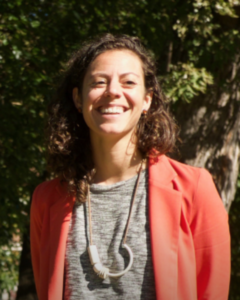
Maya Breitburg-Smith
Maya Breitburg-Smith is a Senior Mediator in RESOLVE’s Washington, D.C., office, where she designs and facilitates collaborative processes and consensus-building dialogues to navigate complex and technical questions, bridge cultural divides, and engage diverse perspectives. Her work focuses primarily on environmental, natural resource, and public health issues. Her recent projects have focused on tribal and endangered species issues on the Missouri River, strategies for coordinated climate policy, and public input into state disaster preparedness plans.
Prior to joining RESOLVE, Maya served for three years as a Peace Corps Volunteer in Fiji, where she organized a local environmental committee, managed community-based marine conservation projects, and facilitated project development and management trainings. Now, at RESOLVE, Maya’s facilitation, strategic approach, and subject matter expertise empower people involved in environmental, natural resource, and public health decision-making to reach sustainable solutions.
Email contact: mbreitburg-smith@resolve.ngo
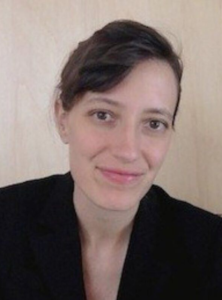
Holly Jean Buck
Holly Jean Buck is a postdoctoral research fellow at UCLA’s Institute of the Environment and Sustainability. She’s interested in how communities can be involved in the design of emerging environmental technologies. She works at the interface of environmental sociology, international development, and science and technology studies. Her diverse research interests include agroecology and carbon farming, new energy technologies, artificial intelligence, and the restoration of California’s Salton Sea.
At present, she is studying how technologies to remove carbon dioxide from the atmosphere might affect landscapes in the central US, and how policy for scaling up carbon dioxide removal can be designed for community benefit. Her book After Geoengineering: Climate Tragedy, Repair, and Restoration examines best-case scenarios for carbon removal. She has written on several aspects of climate engineering, including humanitarian and development approaches to geoengineering, gender considerations, and human rights issues.
Prior to her academic life, she has worked as a foreign affairs analyst, a geospatial technician for a remote sensing company, and a creative writing teacher. She holds a doctorate in Development Sociology from Cornell University and a MSc in Human Ecology from Lund University, Sweden.
Email Contact: holly.jean.buck@gmail.com
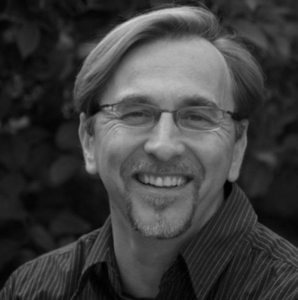
Hunter Cutting
Hunter is a veteran political director who develops communications strategy for Climate Nexus. Early in his career, he served as a legislative aide in the U.S. House of Representatives and traveled the campaign trail, directing numerous political campaigns and working in swing districts such as Peoria, IL and Riverside, CA. He has written extensively on media and communications, most recently authoring Connecting the Dots: A Communications Guide to Climate Change and Extreme Weather. As a researcher, he has helped to extend the field of practice, developing new methodologies for media analysis.
Prior to joining Climate Nexus, Hunter built the energy and climate division of Resource Media, helped to launch and lead We Interrupt This Message, a national media strategy center dedicated to social justice, and led NGO communications in milestone climate change events such as the UNFCCC meeting in Bali and the release of the Nobel-prize winning IPCC Fourth Assessment Report.
Hunter earned a Bachelor of Science in Conservation and Resource Studies from the University of California, Berkeley.
Email Contact: hcutting@climatenexus.org
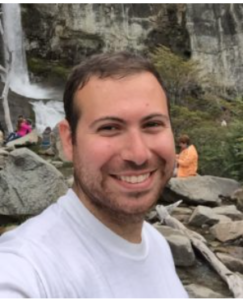
Steven Feit
Steven Feit (he/him) is an attorney in CIEL’s Climate and Energy Program. Steven’s work focuses primarily on climate liability and finance. Steven specializes in developing legal strategies to hold fossil fuel companies accountable for the impacts of climate change and for failures to acknowledge climate risks, as well as works on issues of securities law and finance to accelerate the incorporation of climate risk into financial markets and disclosures. He was a primary author of CIEL’s Trillion Dollar Transformation report, outlining the fiduciary and financial risks of climate change to pension fund fiduciaries. He is also one of the primary researchers and authors of the Smoke And Fumes project, a public documentation of the early history of the oil industry.
Steven graduated from Cornell University with a BS in Applied Economics & Management and then attended law school at New York University. At NYU, he served as an editor of the Environmental Law Journal and worked for multiple environmental NGOs. During a semester in Buenos Aires, Argentina, he also worked for a prisoners’ rights organization representing incarcerated women against the Argentine government. Steven received his JD from NYU and joined CIEL in 2015. Steven is a member of the State Bar of New York and the District of Columbia.
Email Contact: sfeit@ciel.org.
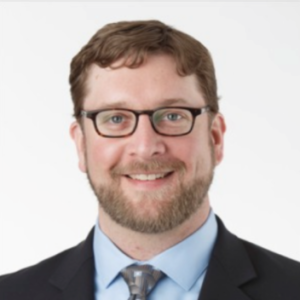
Jason Funk
Jason Funk, PhD, is Principal & Founder of the Land Use & Climate Knowledge Initiative, a project of the Global Philanthropy Partnership. Dr. Funk works at the intersection of land use and climate change, focusing on ways to incentivize land management activities that can help slow climate change, improve rural development, and shape more sustainable landscapes. He has advocated for
sensible land-use policies at the United Nations Framework Convention on Climate Change for over 10 years and he is certified as an expert reviewer for land-use emissions inventories.
Contact Jason at lucki.funk@gmail.com
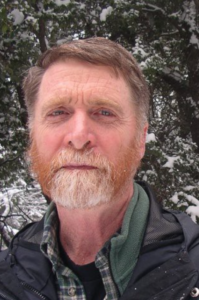
Bruce Hamilton
Bruce Hamilton is the Deputy Executive Director of the Sierra Club. He has worked for the Club for more than 35 years. He started as a regional Sierra Club organizer in the Northern Rocky Mountains and Northern Plains states, then served as National Field Director, and later as National Conservation Director.
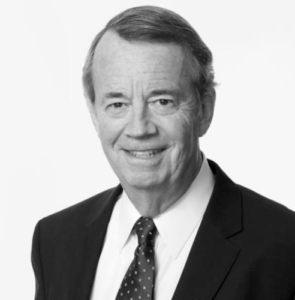
David Hawkins
David Hawkins joined the nascent Natural Resources Defense Council (NRDC) in 1971 and has been with it ever since, minus the four years he spent working at the U.S. Environmental Protection Agency during the Carter administration. Upon his return, he dedicated much of his time to getting an improved Clean Air Act reauthorized by Congress in 1990. Hawkins then served as director of NRDC’s Air & Energy program for 11 years until assuming the directorship of the organization’s Climate Center in 2001. With expertise in advanced coal technologies and carbon dioxide capture and storage, Hawkins served as a member of the U.S. Department of Energy’s Climate Change Science Program Product Development Advisory Committee. He is a graduate of the Columbia University School of Law. He is based in NRDC’s New York office.
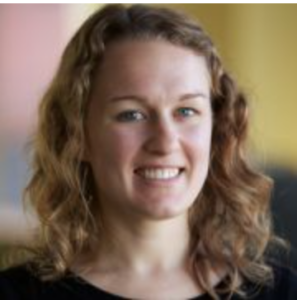
Katie Lebling
Katie Lebling is an Associate in WRI’s Climate Program where she works on research and analysis of technological carbon removal approaches. She previously supported work on the development and implementation of global data platforms like Climate Watch.
Before joining WRI, she worked at The Asia Group, and interned at the Woodrow Wilson Center’s China Environment Forum and the Treasury Department’s Office of Environment and Energy.
She holds a Master’s degree from Johns Hopkins School of Advanced International Studies in Energy, Resources, and the Environment, where she spent one year of the program studying in Nanjing, China, and has a B.A. from Colby College in Biology and Chinese language.
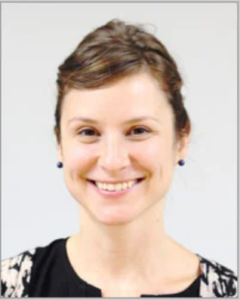
Rachel Licker
Rachel Licker is a senior climate scientist with the Climate & Energy Program at the Union of Concerned Scientists. In her role, Dr. Licker communicates climate science to policymakers, the public, and the media. She analyzes new developments in climate science and works to defend climate science budgets and programs.
Prior to joining UCS, Dr. Licker completed an American Association for the Advancement of Science (AAAS) Science & Technology Policy Fellowship. For her fellowship, Dr. Licker served as a foreign affairs officer with the U.S. Department of State, where she managed its work with the Global Environment Facility trust fund.
Before that, Dr. Licker completed postdoctoral training at Princeton University’s Woodrow Wilson School of Public and International Affairs. During that time, she also served as a chapter scientist and contributing author with the Intergovernmental Panel on Climate Change’s Working Group II.
Dr. Licker earned her Ph.D. in environment and resources, and her B.S. in biology from the University of Wisconsin-Madison. She also holds an M.S. in environmental studies and sustainability science from Lund University in Sweden.
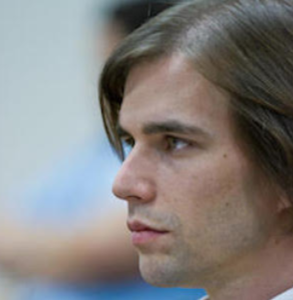
David Morrow
David Morrow, PhD, is the Director of Research for the Institute for Carbon Removal Law and Policy. Dr. Morrow works on normative aspects of climate policy, especially climate justice and the ethics and governance of carbon removal and climate engineering. He was previously an assistant professor at the University of Alabama at Birmingham, where he taught in the philosophy and political economy program. He is the author or co-author of several philosophy textbooks, including Moral Reasoning: A Text and Reader on Ethics and Contemporary Moral Issues (Oxford University Press, 2018). His latest book, Values in Climate Policy, is due out from Rowman & Littlefield International in November 2019.
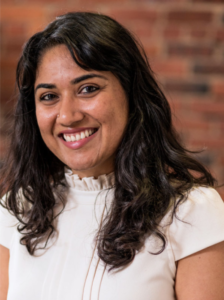
Deepika Nagabhushan
Deepika leads the Carbon Capture & Sequestration (CCS) program at Clean Air Task Force (CATF). She works to develop policy strategies aimed at deploying carbon capture, utilization & sequestration technologies globally by mid-century in line with keeping global temperature rise below 1.5C. Deepika has developed policy analysis and led advocacy efforts related to CCS, including power sector modeling that studied CCS deployment in the US under various federal policy scenarios, including 45Q tax credit that the Congress passed in 2018, an assessment of the role of zero carbon technology in developing countries, and securing a CCUS protocol under the California LCFS. Her current areas of focus include basin-scale CO2 management and the relationship between CCS and criteria air pollution at industrial facilities.
Prior to joining CATF, Deepika led the deployment of global marketing operations at Schneider Electric across Asia-Pacific countries. Deepika graduated in 2015 from The Earth Institute at Columbia University with a Master of Science in Sustainability Management. She holds a bachelor’s degree in business management from Bangalore University in Karnataka, India. She is currently based in San Francisco.
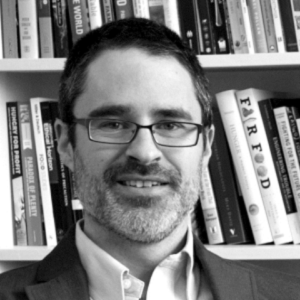
Simon Nicholson
Simon Nicholson, PhD, is an associate professor and director of the Global Environmental Politics program at the School of International Service at American University. His work focuses on global environmental governance, global food politics, and the politics of emerging technologies. His work on carbon removal is informed by a deep sense of concern about the lack of effective response to climate change coming from mainstream political and social processes. At the same time, prior work on the politics of technology tells him that promising technological responses to complex social problems can too easily go awry, can fail to fulfill expectations, can be repurposed for ill-conceived or nefarious ends, or can entrench the very dynamics that drive the problems to which the technologies are attempting to respond. He brings cautious optimism to the carbon removal conversation, with emphasis on “cautious.” Among his publications, Nicholson is co-editor (with Sikina Jinnah) of New Earth Politics (MIT Press, 2016), and (with Paul Wapner) of Global Environmental Politics: From Person to Planet (Routledge, 2015).
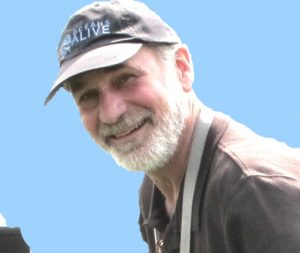
Joe Rudek
Dr. Rudek is a Lead Senior Scientist with Environmental Defense Fund, a position he has held since 1996. He holds a Ph.D. (1992) in environmental biology from the University of North Carolina at Chapel Hill. Dr. Rudek also holds an adjunct Associate Professorship in the Department Earth, Marine and Atmospheric Sciences at North Carolina State University.
He works across a variety of arenas within EDF’s areas of focus. He works to measure and reduce GHG and nitrogen emissions from agriculture, especially low carbon rice farming, and livestock manure management. He is also the technical lead for EDF’s work on methane emissions from natural gas end-use sectors such as electric generation, industrial use, urban neighborhoods, and heavy-duty trucks. Dr. Rudek also provides technical guidance to EDF’s efforts on sustainable supply chains for major retailers.
Dr. Rudek lives and works in the Philadelphia area.
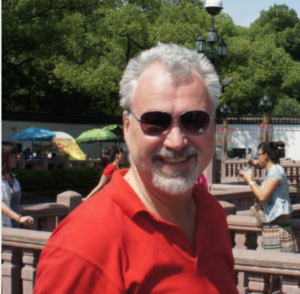
Stephan Singer
Dr Stephan Singer has spent the last 23 years with WWF Germany, WWF Europe and WWF International. His last role, starting in 2009, was ‘Director of Global Energy Policy’.
Stephan has a PhD in soil physics on carbon and nitrogen dynamics in poverished Indian soils. Before joining WWF he was a strong anti-nuclear activist in Germany, a journalist, and he also worked for four years for GIZ in India and Kenya on poverty alleviation with subsistence farming in semi-arid tropics.
Stephan has been driving the global move to 100% renewables in WWF for the past few years. He is a strong supporter of a Just and Fair Transition to 100% Renewables in all countries, coupled with significant public and private financial shifts away from fossil fuels and nuclear, towards a much more equitable world.
His work includes providing support and advises to CAN member organisations on renewable energy expansion in all countries, which is a prerequisite staying below 1.5 degree C.
Stephan is a regular and invited peer-reviewer of the annual IEA World Energy Outlook, a regular CSO reviewer of some of the IPCC work (WG III, mitigation), and chairperson of the Renewable Grid Initiative (RGI) in Europe. He will be working from Brussels where he lives with his family.
Contact Stephan
Email: singer@climatenetwork.org
